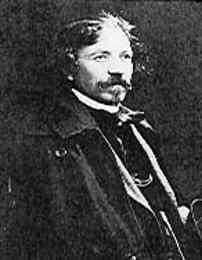Shalom Aleichem
שלום עליכם

Shalom Aleichem (Shalom Rabinowitz) (1859-1916) was born in Pereyaslav, the Ukraine. As a child, he moved with his family to Voronkov, a small town nearby which later served as the model for the fictitious town of Kasrilevke described in his works. Shalom Aleichem received his early education in a traditional heder in Voronkov. His father, a wealthy merchant, was interested in the Haskalah (Enlightenment) and in modern Hebrew literature. A failed business affair caused the family to move again. Days of poverty and want followed, and in 1872 his mother died of cholera. In 1873, at the age of 14, he entered a Russian high school from which he graduated in 1876.
Although he began writing in Hebrew, his first “serious work” – a dictionary of the curses used by stepmothers – was written in Yiddish. Later on he wrote Hebrew biblical “romances” similar in style to those of Abraham Mapu, of which his father was particularly fond. In 1879 he began publishing. For about three years, he wrote reports and articles, mostly about Jewish education, for two Hebrew publications. In 1883, Shalom Aleichem married Olga, and decided to write in Yiddish rather than in Hebrew. One of his first stories appeared in a Yiddish paper under the pseudonym “Shalom Aleichem,” which in Hebrew means “Peace be unto you.” From then on, this was his pen name. He explained it as a way to conceal his identity from his relatives, especially his father, who loved Hebrew. In those days, Yiddish literature, greatly despised by the maskilim (enlightened) who wrote in Hebrew, and the Jewish intelligentsia in Russia who spoke Russian, led Yiddish authors to write under pseudonyms or to publish their works anonymously.
Shalom Aleichem wrote stories, sketches, critical reviews, plays and poems in both verse and prose. He did not limit his creative scope to Yiddish, but published stories, sketches and articles in Hebrew and in Russian as well. In 1888, his financial situation enabled him to realize a long-cherished dream: the founding of a Yiddish literary annual through which the standards of European taste would be introduced into Yiddish literature.
Following a pogrom in 1905, Shalom Aleichem decided to emigrate to the U.S. This was the beginning of a period of wandering which continued until shortly before his death. His immense popularity did not decline after his death but rather increased beyond the Yiddish-speaking public. In 1910 his son-in-law, Hebrew author Y. D. Berkowitz, began translating his works into Hebrew. His works have also been translated into most European languages, as well as Russian. His plays and dramatic versions of his stories have been performed by the best Yiddish and Hebrew theatrical companies in America, Israel, Russia, Poland, and many other countries. The dramatic version of Tevye’s Daughters has been performed by the finest Yiddish actors, and in the 1960s these sketches formed the basis of the stage and film musical, Fiddler on the Roof.

